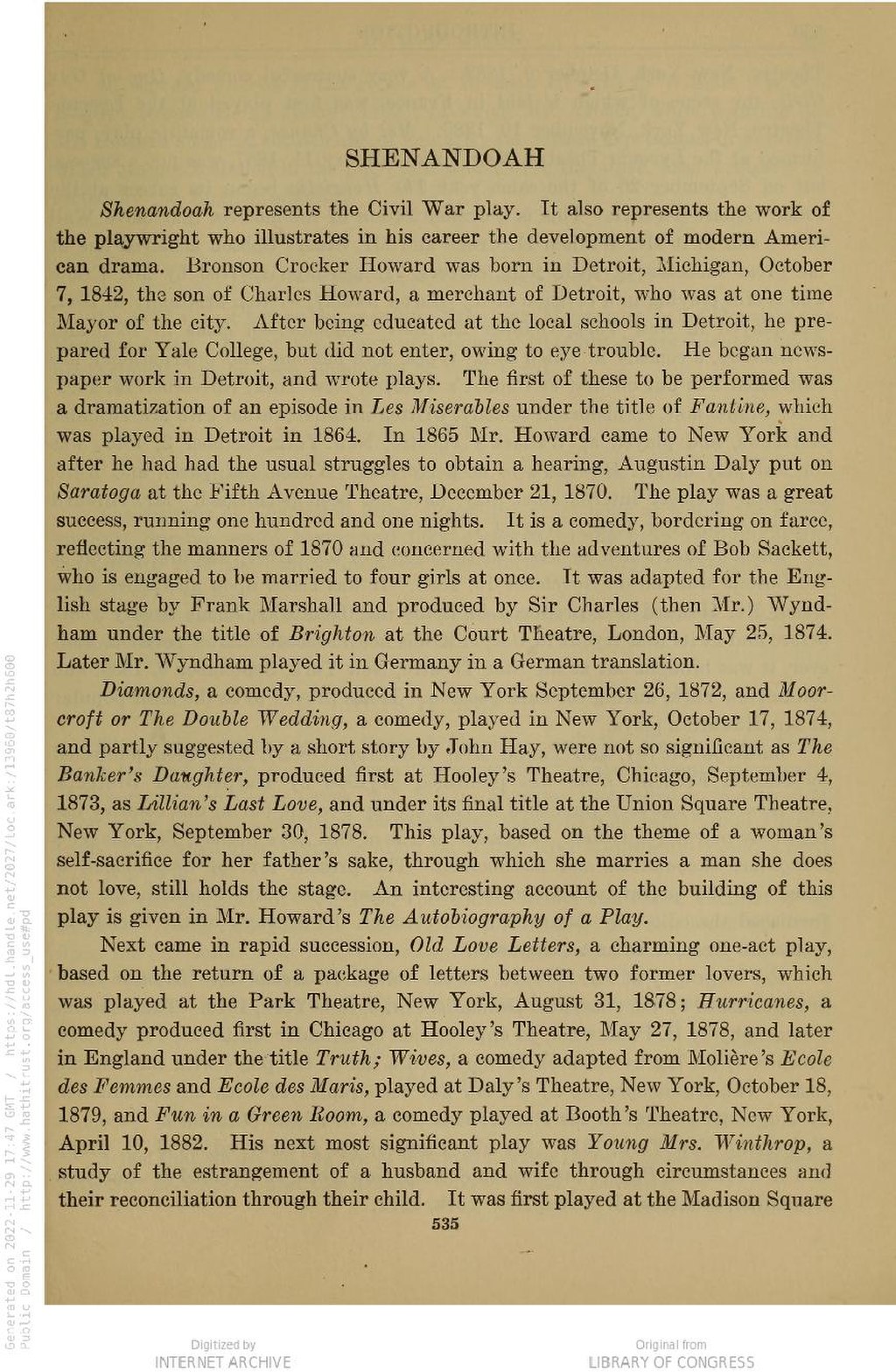SHENANDOAH
Shenandoah represents the Civil War play. It also represents the work of the playwright who illustrates in his career the development of modern American drama. Bronson Crocker Howard was born in Detroit, Michigan, October 7, 1842, the son of Charles Howard, a merchant of Detroit, who was at one time Mayor of the city. After being educated at the local schools in Detroit, he prepared for Yale College, but did not enter, owing to eye trouble. He began newspaper work in Detroit, and wrote plays. The first of these to be performed was a dramatization of an episode in Les Miserables under the title of Fantine, which was played in Detroit in 1864. In 1865 Mr. Howard came to New York and after he had had the usual struggles to obtain a hearing, Augustin Daly put on Saratoga at the Fifth Avenue Theatre, December 21, 1870. The play was a great success, running one hundred and one nights. It is a comedy, bordering on farce, reflecting the manners of 1870 and concerned with the adventures of Bob Sackett, who is engaged to be married to four girls at once. It was adapted for the English stage by Frank Marshall and produced by Sir Charles (then Mr.) Wyndham under the title of Brighton at the Court Theatre, London, May 25, 1874. Later Mr. Wyndham played it in Germany in a German translation.
Diamonds, a comedy, produced in New York September 26, 1872, and Moorcroft or The Double Wedding, a comedy, played in New York, October 17, 1874, and partly suggested by a short story by John Hay, were not so significant as The Banker's Daughter, produced first at Hooley's Theatre, Chicago, September 4, 1873, as Lillian's Last Love, and under its final title at the Union Square Theatre, New York, September 30, 1878. This play, based on the theme of a woman's self-sacrifice for her father's sake, through which she marries a man she does not love, still holds the stage. An interesting account of the building of this play is given in Mr. Howard's The Autobiography of a Play.
Next came in rapid succession, Old Love Letters, a charming one-act play, based on the return of a package of letters between two former lovers, which was played at the Park Theatre, New York, August 31, 1878; Hurricanes, a comedy produced first in Chicago at Hooley's Theatre, May 27, 1878, and later in England under the title Truth; Wives, a comedy adapted from Moliere's Ecole des Femmes and Ecole des Maris, played at Daly's Theatre, New York, October 18, 1879, and Fun in a Green Room, a comedy played at Booth's Theatre, New York, April 10, 1882. His next most significant play was Young Mrs. Winthrop, a study of the estrangement of a husband and wife through circumstances and their reconciliation through their child. It was first played at the Madison Square
535
